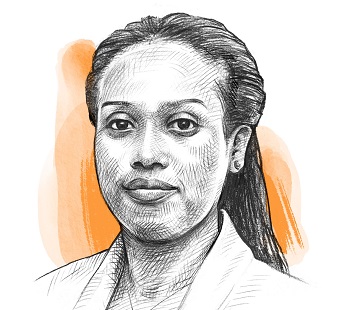AGA-SP – African Governance Architecture Support Project
Objective
-
€5mBUDGET
-
10/09/2020PROJECT START
-
40 monthsDURATION
The African Governance Architecture (AGA) is a dialogue mechanism which aims to promote good governance and consolidate democracy. Established by the African Union and Heads of State and Government in July 2010, the AGA plays a key role in the achievement of the objectives set out in the African Union’s legal and political declarations of shared values.
Recognising the role of good governance and respect for human rights in achieving peaceful and sustainable growth in Africa, the Africa-EU Joint Strategy has made democratic governance and human rights central to the partnership between the two continents.
On this basis, the European Union is financing the African Governance Architecture Support Project (AGA-SP), which is part of a broader structural support system provided to the African Union to build an integrated, prosperous and peaceful Africa.
AGA-SP: improving governance and citizen participation
The African Governance Architecture Support Project aims to build the capacities of the members of the African Governance Architecture (AGA) platform and promote effective coordination and cooperation between the actors. It will thereby contribute to the achievement of certain aspirations of the African Union’s Agenda 2063:
• “An Africa of Good Governance, Democracy, Respect for Human Rights, Justice and the Rule of Law” (Aspiration 3)
• “An Africa Whose Development is people driven, relying on the potential offered by African People, especially its Women and Youth, and caring for Children” (Aspiration 6).
Through its action, the project will also achieve the following objectives:
1) Ensure the effective implementation and respect by African Union Member States of the norms, standards, decisions and recommendations of the members of the AGA Platform.
2) Increase the involvement of African citizens among the members of the AGA platform.
3) Strengthen the coordination, complementarity and synergies between the members of the AGA platform and with other relevant actors, such as regional organisations, national institutions and civil society organisations.
4) Strengthen the effective and efficient management of the AGA bodies.
Supporting the bodies of the AGA
Five AGA bodies have been identified as the main financial beneficiaries and will receive grants and technical assistance from experts.
The activities deployed will improve the control and monitoring of the implementation of the decisions and recommendations made by the bodies, raise public awareness of the role and work of each body, and strengthen capacities to coordinate with the other bodies working on related issues. Specific activities, including capacity building, will also be implemented depending on the needs of each body. Some examples are given below.
AGA Secretariat
The operation with the AGA Secretariat aims to make it function as a technical assistance facility for the various bodies due to its central role. The activities include:
• Organising capacity building training and workshops
• Preparing legislation, standards and norms
• Organising consultation processes
• Building communication capacities for the AGA bodies
• Increasing the involvement of civil society organisations.
African Committee of Experts on the Rights and Welfare of the Child (ACERWC)
The project is assisting the Committee with the dissemination and appropriation of the African Charter on the Rights and Welfare of the Child. The objective is for it to be ratified and applied by the Member States of the African Union. It is also contributing to the development of an integrated approach to the protection and promotion of the rights of children in Africa.
Activities will be deployed to build the technical and human capacities of the Committee.
African Commission on Human and People’s Rights (ACHPR)
• Improve the communication, technical capacities and human resources of the units.
African Court on Human and People’s Rights (AfCHPR)
• Contribute to improving the management of cases and the conformity of the decisions of the Court
• Build the capacities of the staff for budgeting, planning, implementation and the preparation of reports.
African Peer Review Mechanism (APRM)
• Build the technical and human capacities of the APRM.
Pan-African Parliament (PAP)
• Improve the alignment of national regulations with the AGA’s legislative framework
• Institutionalise the contributions of regional organisations, national human rights and governance institutions and CSOs to the AGA’s activities
• Build the capacities of the Pan-African Parliament in various fields, including human resources and financial management, monitoring and evaluation, and technical issues.
Gender dimension in the project
Gender is an important part of the AGA’s mandate and will therefore be addressed as a crosscutting issue in all the aspects of the project. The project will promote the implementation of existing instruments in Africa, such as the Maputo Protocol on Women’s Rights, in the Member States of the African Union.
At the operational level, there will be an equal participation of women and men in the selection of experts and in the capacity building and networking activities.


